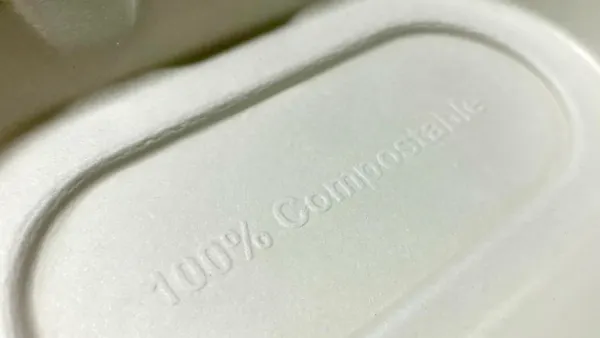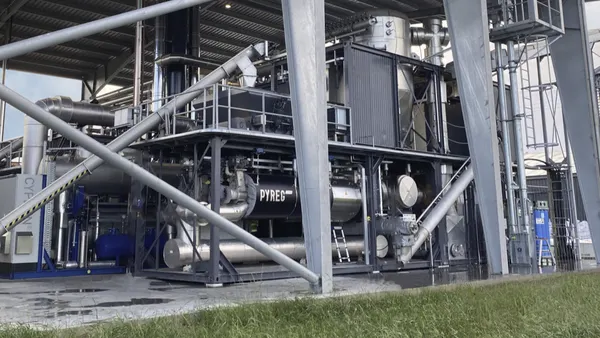Dive Brief:
- A suite of clean energy bills that passed the Michigan legislature last week aims to move the state to 100% clean energy by 2040. It includes provisions allowing “incinerator” facilities to count toward local clean energy goals until 2040, setting the waste management strategy up as an interim measure.
- SB271, part of a package of five bills approved by the legislature, also counts landfill-gas-to-energy and “methane digester” facilities as clean energy, but it excludes fuels made from post-use polymers, tires, tire-derived fuel and plastic, among other fossil fuels.
- Gov. Gretchen Whitmer is expected to sign the bill. Her office did not provide a date for the signing.
Dive Insight:
Many states have debated the inclusion of combustion facilities in their renewable energy portfolio standards over the years, with operators touting the technology’s potential greenhouse gas benefits over landfilling and environmental advocates raising alarms about pollution concerns.
Debates continue in states such as Maryland, where Gov. Wes Moore floated the idea of removing incineration from renewable portfolio standards in his transition documents, but the state failed to pass a bill doing so this year.
Michigan’s SB271 instructs electric utilities to transition to renewable or clean energy programs while pursuing energy savings initiatives. Incineration is included in the definition of a renewable energy system, but the bill only includes facilities that were generating power before the start of this year.
In Michigan, pressure from neighbors and groups like Zero Waste Detroit led to the closure of the Detroit Renewable Power WTE facility in 2019. That left a facility in Kent County as the last remaining MSW incinerator in the state.
Kent County has kept the facility as its population and MSW tonnage has grown for nearly a decade. In February, the county handed over operations of it plant to Vicinity Energy amid plans to operate the facility for another 20 years. The plant has a power purchase agreement with Consumers Energy that runs until 2039.
The county is investing $40 million in upgrades to the facility. Meanwhile, it’s planning a sustainable business park that at one point was slated to include an anaerobic digester project from Anaergia. That plan is under review, however, as Anaergia struggles financially.
Dar Baas, director of the Kent County Department of Public Works, said in a statement he expected both incineration and anaerobic digestion to play a role in the county for some time as it worked to meet statewide recycling goals and the new clean energy bills.
“We appreciate that the new legislation recognizes the role that waste to energy plays in securing Michigan’s clean energy future,” Baas said.
He noted that his department has instructed the Kent County Board of Commissioners to delay a vote on the sustainable business park while the review continues. “Regardless, we believe that anaerobic digestion will be a key part of any future solution for Michigan if we want to reduce reliance on landfills, meet state recycling goals, and achieve 100 percent clean energy future,” Baas said.
Whitmer praised the package of clean energy bills in a statement on Oct. 26. She said the bills would “balance reliability and affordability and help us protect our air and our water and improve public health.”
“This clean energy package is a big deal for Michigan families, Michigan workers, and Michigan’s economy,” she said.










